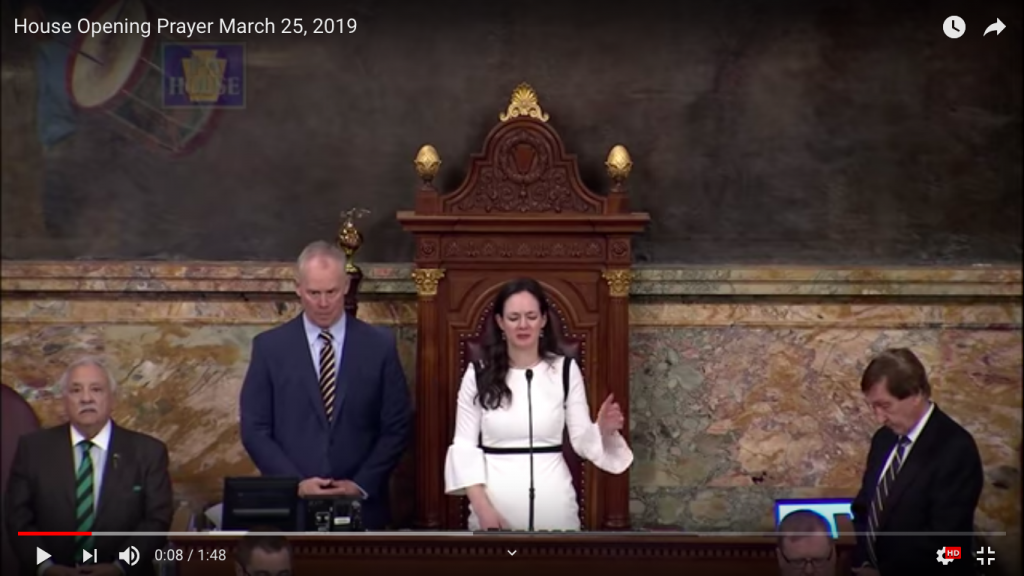Is prayer always a form of supplication, intercession, or thanksgiving? Or can it serve other functions?

From the Pennsylvania Capital Star:
“A first-year member of the Pennsylvania House on Monday offered a prayer laden with political and Christian imagery shortly before the swearing in of the chamber’s first Muslim woman. Rep. Stephanie Borowicz, R-Clinton, said “Jesus” 13 times, “God” six times, and “Lord” four times, as Raging Chicken Press writer Sean Kitchen first noted on Twitter. She also expressed thanks to God that President Donald Trump “stands besides Israel” in a rambling, nearly two minute prayer. “Jesus, you are our only hope,” Borowicz said during the prayer. Borowicz delivered the prayer shortly before Movita Johnson-Harrell — the first Muslim woman elected to the General Assembly — was sworn in.”
See the full video here.

 1. When people ask what you study, what do you tell them?
1. When people ask what you study, what do you tell them?